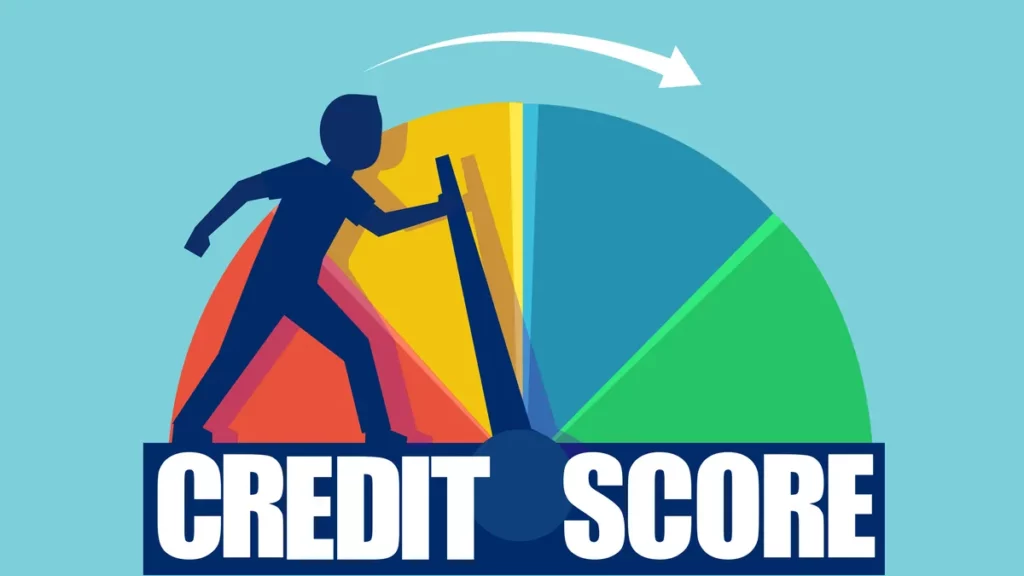What’s the quickest approach to improve your credit score?
Are you thinking about getting a loan or a line of credit? Keeping an eye on your credit score is a good idea. Your credit score may have an impact on your capacity to obtain credit at a reasonable price and on favorable terms.

The good news is that a low credit score is not irreversible, and you can work to improve it.
You can gain points in a variety of ways.
What is the cause of my poor credit rating?
Many people are unaware that their actions have an impact on their ratings, and a low score can be caused by a variety of circumstances. Don’t worry; you’ve already taken the first step toward improving it by reading this. Anyone can be affected at any time. A few examples are as follows:
- Any type of dangerous or reckless financial behaviour, such as: • Failure to pay bills on time or at all • Non-payment of debts • Failure to keep contact information up to date • Filling out a bunch of credit applications • Non-payment of a loan
- You will lose your home if you go through foreclosure.
- The Court ordered that restitution be paid. In rare cases, the credit bureau may make a mistake.
What are the ramifications of a poor credit score?
Don’t dismiss a low credit score simply because it doesn’t reset.
Credit ratings that aren’t up to date might have a negative impact on your business’s bottom line.
You should be aware that a low grade can lead to a slew of other issues in the future.
Depending on your score, you’ll need to perform the following:
- There’s a chance your credit or loan application will be turned down.
- It may be tough for you to find work.
- Your mortgage application was approved; • Loan interest rates may be higher than usual.
- Starting a business can be tough if you can’t secure financing.
- Obtaining a loan for a new car might be challenging.
- Your request may be denied by your electricity or telecommunications supplier.
- Regardless of your situation, you may be turned down for a commercial or residential rental.
What steps can you take to raise your credit score?
No matter how low your credit score is, it doesn’t have to stay that way.
To enhance your credit score, follow these simple steps:
- It’s critical to know your score.
Even though it seems self-evident, you must understand what you’re doing. Get multiple copies of your credit report from different credit bureaus (as the score can vary slightly based on the information they hold).
- Mistakes should be challenged or addressed.
Credit bureaus make mistakes from time to time. According to a recent FTC survey, one-quarter of customers have issues with their credit reports, and 5% have made mistakes that could result in higher borrowing expenses.
Knowing your credit report and score is a good place to start, but identifying problems is also important. Report any errors you see and who will be in charge of fixing them.
- Make any necessary changes.
Even seemingly trivial events can have a major impact on your credit score. If you fix these issues as soon as feasible, you can enhance your credit score in the long run.
- Work on your money management abilities.
The problem isn’t only about past-due bills! Keep in mind that you must be cautious both now and in the future. Pay your credit card bills on time, maintain a close eye on your monthly budget, and make timely credit card payments. It’s also a good idea to put off asking for new credit or loans, as well as lowering the limit on any credit cards you have, depending on your circumstances.
- Demonstrate your knowledge of loan management.
Demonstrating to lenders that you can responsibly manage debt and that you’re a safe bet if you have a financial responsibility is a smart idea. It’s preferable to have a “healthy” level of debt, particularly if you have a mortgage, but make sure you pay your bills on time.
- Do you believe that improving your credit score will take a long time?
The response is dependent on the reason for the poor grade. Your credit score would quickly rise if the credit bureau or your credit provider made a reporting error. If you need to clean up your money, it will take longer.
Even if you make other changes, if you continue to add damaging material to your report, you may not see a difference (such as by not taking credit cards or loan repayments).
To expedite the process, pay off any large credit card debts on or before the due date, and correct any credit report mistakes you find.
- You should close old accounts instead of leaving them open.
The age of your credit accounts has an impact on your credit score. The vast majority of credit scores are affected. Because credit usage influences your credit score, having some credit is preferable to having none.
You can tell how old your credit is by looking at your oldest account and most senior credit card—the average age of your investment portfolio. You will have no control over your credit score.
- If your age is hurting your score, think about it.
If you have the choice, keep your oldest accounts open in general. If you’re trying to raise your credit score, remember that cancelling credit cards can make things more difficult. Your secured credit limit will be deducted from your overall credit use when your credit score is determined. Keep the card open and use it frequently to prevent it from being copied.






